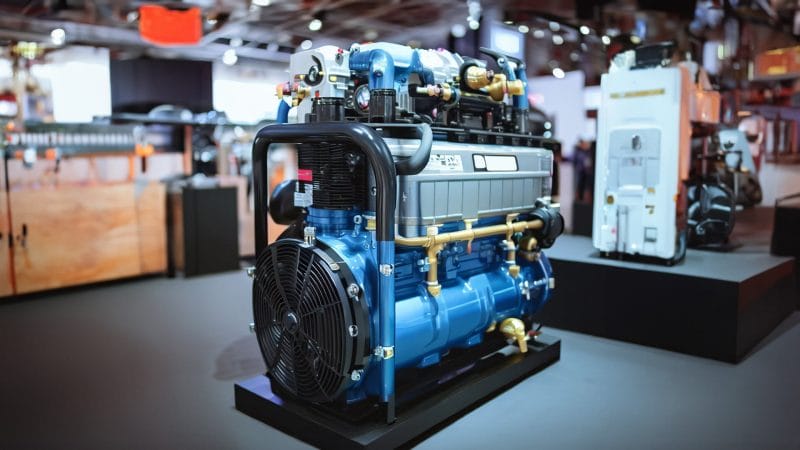Artificial Intelligence in EMS
What’s artificial intelligence in EMS?
What is artificial intelligence in energy management systems?
Artificial intelligence in EMS is the application of AI techniques to manage and optimize energy consumption in various sectors. It involves the use of machine learning algorithms and data analytics to predict, monitor, and control energy usage. In the rapidly evolving world of technology, artificial intelligence in EMS has emerged as a game-changer.
How Does Artificial Intelligence Work in EMS?
Artificial intelligence in EMS works by processing vast amounts of data from various sources such as smart meters, weather forecasts, and IoT devices. Machine learning algorithms analyze this data to identify patterns and make accurate predictions about future energy needs. This allows for real-time adjustments to energy consumption, leading to significant energy and cost savings.
What are some applications of artificial intelligence in EMS?
Artificial intelligence in EMS has a wide range of applications. It can be used for demand response, where AI predicts energy demand and adjusts supply accordingly. It’s also used in predictive maintenance, where AI predicts when equipment might fail and schedules maintenance to prevent downtime. Moreover, AI can optimize renewable energy usage by predicting production based on weather patterns.
What are some of the benefits service stations can reap from artificial intelligence in EMS?
Service stations can reap numerous benefits from implementing artificial intelligence in EMS. Here are some of them:
- Reduced carbon footprint: Lower energy consumption leads to lower carbon emissions. Artificial intelligence in EMS can generate a detailed data analysis that provides deep insights into multiple aspects of service stations’ carbon footprint. It can analyze large datasets to identify patterns and make predictions, enabling more efficient use of energy.
- Regulatory compliance: Artificial intelligence in EMS can help meet energy efficiency standards and regulations. The automatic logging feature of the system is a powerful tool to generate accurate energy reports. This makes collecting energy information manually completely unnecessary.
- Data-driven decisions: AI helps make informed decisions based on data analysis. This is essential if oil companies operating service stations wish to achieve the net-zero targets of their sustainability agenda.
Cost savings: Artificial intelligence in EMS can significantly lower energy bills for a service station by optimizing energy usage and reducing waste. Since the system IoT sensors collect real-time data on water, temperature, and electricity, it can provide a comprehensive understanding of energy consumption patterns. AI algorithms analyze the collected data and help in making well-informed decisions about energy reduction. Artificial intelligence in EMS is a smart investment for any service station looking to improve its energy efficiency and bottom line.
- Improved customer experience: Reduced downtime and efficient operations can enhance the customer experience at service stations. Artificial intelligence in EMS can modernize operations to speed response rates and boost efficiency. This leads to smoother and faster services, enhancing the overall customer experience. The same applies for the operation of HVAC systems. When HVAC systems are managed by AI-driven energy management systems, room temperatures can be adjusted to the preferences of customers and employees alike.
- Energy efficiency: AI can optimize energy usage, reducing overall consumption. Our AI-driven energy management systems can analyze data from the service station’s lighting, HVAC, refrigeration, and water systems to adjust energy use based on current conditions, reducing unnecessary energy consumption.
- Predictive capabilities: Artificial intelligence in EMS are algorithms that can learn from past data to predict future energy use. This allows the system to plan energy use 24 hours in advance, ensuring that energy is used efficiently. Moreover, the AI component of the software can also predict equipment failures, reducing downtime and maintenance costs.
- Real-Time monitoring: AI provides real-time insights into energy usage patterns. Keeping track of minute-to-minute energy consumption is the best way to gain full control of the different systems and devices at a service station.
Artificial intelligence in EMS is not just a trend, but a necessity in today’s energy-intensive world. It offers a smart, efficient, and sustainable approach to energy management. EMD Service’s AI-driven energy management systems are at the forefront of this revolution, providing innovative solutions that deliver tangible benefits. Harness the power of AI with EMD Service and transform the energy management of your service stations today!
For more information about our AI-driven solutions, feel free to explore the pages listed in the sidebar. You’re also welcome to request a free trial.
You can read more about our AI-driven solutions by clicking on one the pages in the sidebar. You are also welcome to request a free trial.





